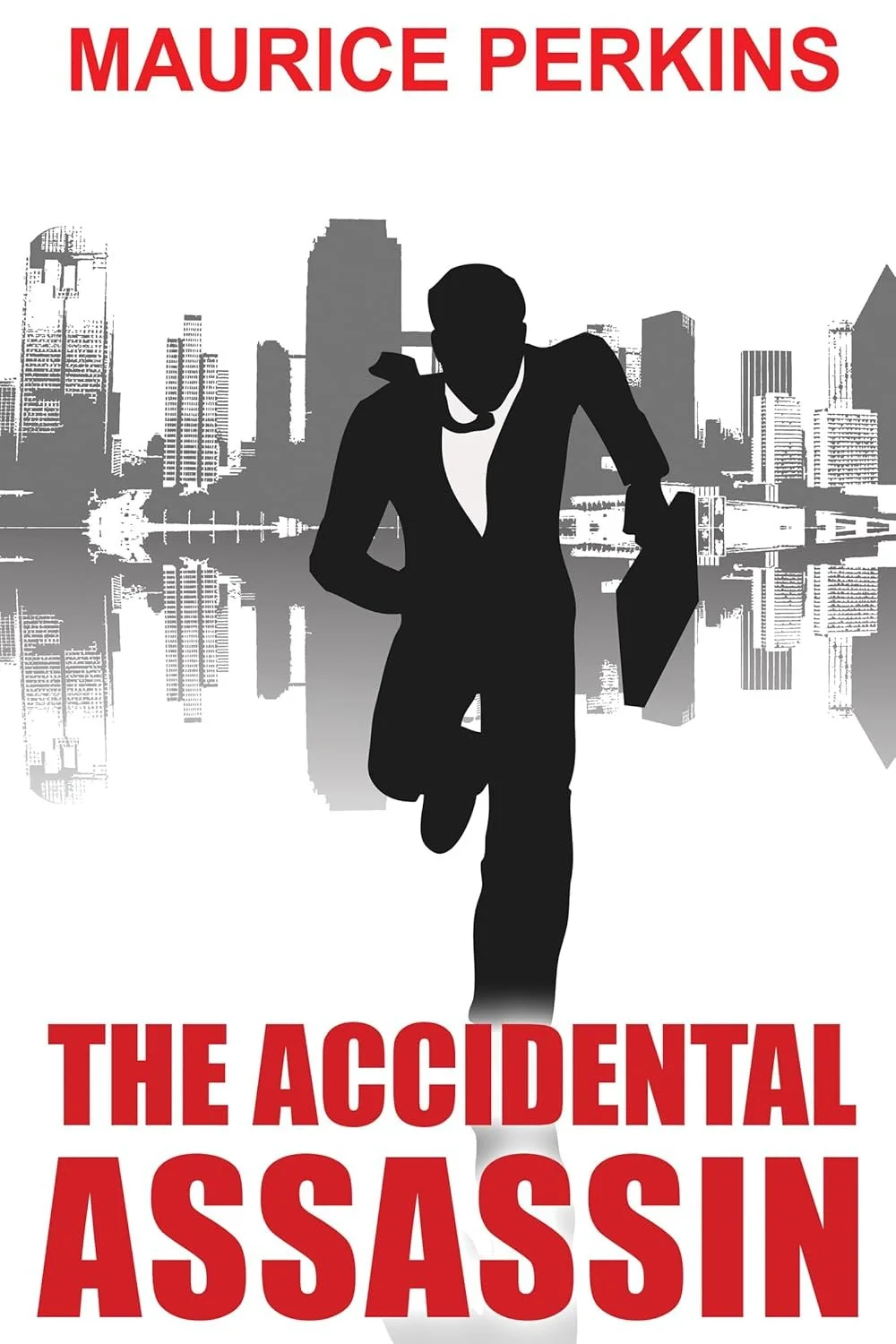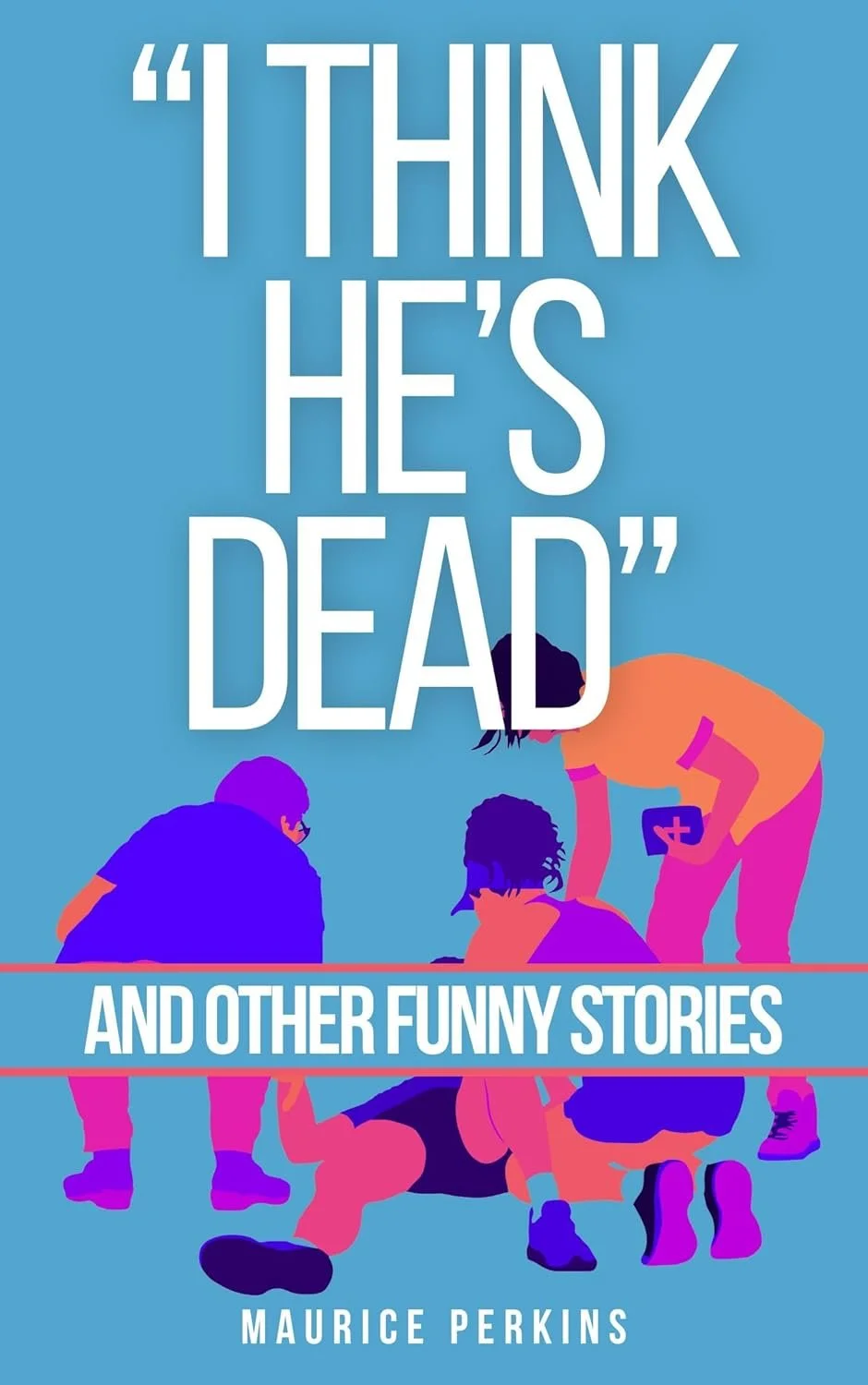Self-Publisher Interview with Maurice “Moz” Perkins
1. What can you tell me about your experience as a writer?
I used to write stories as a child and illustrated them with sketches but fell out of the habit when I was at high school. I worked in business development for about twenty years, in highways and transportation, operations, maintenance and construction which required me to translate client needs into a contractor offering. Being able to describe something again, albeit in a work environment, used quite a few dormant skills until I retired in 2018. I began writing again during the Covid lockdowns in 2020 and started with sharing some of my escapades as single stories on my Facebook page. It was only after a friend suggested that I compile them into a book that I thought I would have a go.
2. What made you decide to write a book?
Many of the escapades and incidents have an adult theme and I wanted to capture them whilst I could still remember them so that my young grandchildren could read them in ten to twenty years, when my memories may not be as good. I wrote three books of memoirs, pretty much my life told in a series of funny stories before I got the bug to write a novel. Since then, I have written a total of three novels and a further edition of memoirs. I am currently writing a prequel to one of the novels, a dark comedy thriller.
3. What circumstances brought you to the decision to self-publish your book?
I had made some enquiries to publish traditionally but the responses all seemed to concentrate on ‘vanity publishing’ where I would have to pay the publisher a four or five figure sum to get a set number of paperback copies printed. I couldn’t justify spending that amount of money and so after discussing things with other authors on social media and on the telephone with friends of friends, I took the decision to self-publish using Kindle Direct Publishing. The first three books cost me nothing, as I wanted to tell my stories in my voice. The covers were made using the KDP process. Each of the novels have been professionally edited and the cost of that was paid for by the sales of my books. The cover graphics have been created by my niece.
4. What has your experience as a self-publisher been like?
The set-up process to self-publish seemed overly complicated when I first began but once I had created a format that worked for me, it was actually quite easy, though time consuming to get the book from a final edit to making them available as e-books, paperback and hardcover copies. Self-marketing can be a struggle but I combine mine with sharing humour, which is apt given my memoirs are funny stories and two of my three novels are dark comedy thrillers. I have over forty-six thousand followers on Twitter (X), three thousand on Blue Sky, and around two thousand connections on LinkedIn, which are my three primary platforms to engage with potential customers.
5. How do you respond to the negative stigma attached to self-publishing and self-published books?
To be fair, I have rarely encountered any negative stigma to being an independent self-published author, quite the opposite. The fact I have sold over three and half thousand books across all three formats (e-book, paperback and hardcover), suggests I am doing something right. I am part of a massive community of authors and readers across social media, who contribute to the debate, offer advice and help on a weekly basis.
6. What is one very important lesson you have learned as a self-publisher so far?
Creating engagement is absolutely key. Independent authors need to be able to find their place in the social media world. I use Twitter (X), BlueSky, Facebook and LinkedIn but I know others have great success on TikTok and Instagram as well but I don’t use those. Other authors use YouTube as their main medium and invest in websites. Whilst I have tried those as platforms to promote myself, I haven’t really delivered any sustained activity yet. My Amazon author page.
7. What do you know now about self-publishing that you wish you knew at the beginning?
One of the things I did was to illustrate my memoirs, with photographs and cartoons and I use Microsoft Word. Whilst the Kindle Direct Publishing site suggested other formats, I chose Word, as it was the software I used to write my stories in. However, I now know that using Portable Document Format or .pdf as it is more commonly known, means I have far more control on layout and fixing the position of photographs and illustrations. I now use it all the time to upload my manuscripts.
8. A lot of authors of self-published books have reservations about promoting and marketing their books. Some even feel that it is a form of vanity or self-importance. What is your opinion about this?
I can understand that people have reservations and sometimes those thoughts do flicker through my mind. However, I have a gregarious and quite ebullient style in my everyday life and like to make people smile. So, I use humour as my preferred method of engagement on social media. Whilst others post stuff that is full of doom and gloom, I try to share happiness and fun, which is an extension of my general outlook on life. It helps that most of my work is humorous, as well as being slightly dark at times. I don’t see it as vanity at all. I see it as sharing my work in the hope that it entertains and makes readers smile.
9. How do you promote your books and what form of book promotion has worked the best for you?
I use part of the book synopsis as well as carving out some extracts from the book. I use links to the Amazon site for each book along with links to book samples. That way I think it gives readers a free shot at reading what my books are about. Twitter (X) is by far the best platform for me, partly because I have so many followers, but it is the strength of the writing and reading community on there that helps to share my messaging and book promotions. I cannot underline just how powerful that is.
10. What are some other important things you have learned as a self-publisher?
Criticism is very direct and sometimes it can cause writers to wobble. I doubt that traditionally published authors ever experience the levels of negativity that some independently published writers receive. A book review is one thing but placing oneself out there in the world of social media by yourself can be a daunting place. Many traditionally published authors are not as active on those platforms. So, understanding that readers can be over critical is something you have to take in your stride when you are an independent. They have paid their money, in some cases direct to yourself, so you have to respect their opinion.
11. Do you feel that self-publishing is a viable choice for other authors?
Yes, I do. Being a self-published independent author creates freedom of choice that some traditionally published authors on fixed retainers to produce ‘x’ number of books over ‘y’ period of time are not. That could feel quite claustrophobic and restricting to the way that self-publishing independent authors create their work.
12. How do you feel that self-publishing their books has helped many unknown authors finally get the recognition their books deserve?
In my case, it has allowed me to tell my personal stories, my memoirs, in my own style. I elected to write exactly as I would tell those stories over a beer in the pub. I am an authentic person, and I wanted my escapades to read authentic, not sanitized or dumbed down in any way. I have sold nearly three thousand books of my four-part series, which gives me some degree of recognition and confidence that I am doing the right thing.
ABOUT MAURICE:
Maurice Perkins, also known as Moz, Polly and Mo (nicknames, depending on where he is known from) was born in 1957, a time when communities were still recovering from the impact of the Second World War when rationing had only just ended. His parents were from simple backgrounds but created a family with three young boys, built on love, key principles, and values. Elders on both sides of his family served in the military, either during the war or in national service afterwards, he listened to many of their tales. Moz always wanted to join the forces as a child and finally did.
Born in Stockport – Grew up in the Royal Navy (book synopsis). A three-book series. The life and times of how a troubled teenager came of age and matured to contribute to his community. Told by way of funny stories in a raw and gritty style, without ever losing sight of the rascal he was. Illustrated with photographs and cartoons. A unique series of memoirs that reveal everything about growing up with a glint in your eye. No-one else can tell his story like he can. The stories will make you laugh a lot and possibly cry a little.
QUEST (book synopsis). Raven is trying to survive in a post-apocalyptic world. She leads a motley group trying to find answers and a safe place to live. Beset by the challenges of nature, lack of resources and enemies. There are others though, from a different time and place, also trying to survive. Their futures are inextricably linked. A gritty survival thriller that has serious connotations to recent and current world events.
REVENGE (book synopsis). Gangs of Manchester fighting a turf war; old men, who are military veterans with skills, bent politicians on a power struggle; mixed with buckets full of raw dialogue, brutal action, with some kink and dark humour. If readers like Guy Ritchie type stories, then this book is for you.
THE ACCIDENTAL ASSASSIN (book synopsis). A misguided hapless loser with questionable morals, comes to the attention of a ruthless serial killer on a murder spree. Hunting them is an aging detective nearing the end of his career, an investigative journalist chasing a payday and a young ambitious uniformed officer. A dark comedy thriller that will have you laughing and cringing in equal measures at it races towards its final climax.
I THINK HE’S DEAD – and other funny stories (book synopsis) This book is a continuation of my three previous memoirs, ‘Born in Stockport – Grew up in the Royal Navy’ and features on the many different, mainly funny, things that have happened to me and my friends over the years. Some of which are most clearly my fault but others where I can at least claim to have only been a participant or observer, rather than the instigator.





